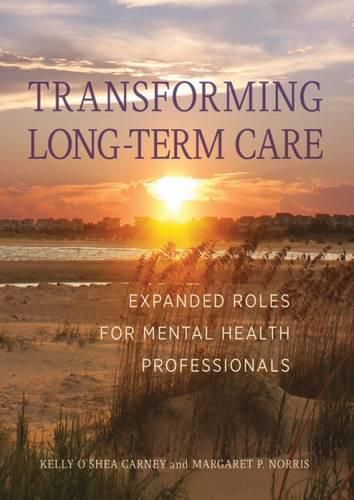Readings Newsletter
Become a Readings Member to make your shopping experience even easier.
Sign in or sign up for free!
You’re not far away from qualifying for FREE standard shipping within Australia
You’ve qualified for FREE standard shipping within Australia
The cart is loading…






Most people fear the idea of living in a long-term care facility. Yet, there is potential for joy and meaning in these settings.
This book highlights expanded roles and services that mental health professionals can provide in long-term care for older adults, offering the potential to improve the quality of care for residents.
Beyond assessments and individual therapy, the authors make a case for mental health providers to help improve the long-term care environment for both residents and staff, thus having a greater impact on systems, culture, and ultimately, patient well-being.
Readers who wish to add or expand their services for older adults will find helpful guidance, including detailed instruction on Medicare policies and reimbursement practices.
The authors also present an innovative model of wrap-around care that involves the array of staff and family members who are present to the individual all day, every day. This comprehensive approach, called the Eldercare Method, positions the mental health professional to serve in the roles of teacher, consultant, role model, advocate, and clinician.
With numerous case examples to illustrate common scenarios and ethical dilemmas, this practical resource will help readers envision new ways to apply their skills in the rapidly growing field of long-term care for older adults.
$9.00 standard shipping within Australia
FREE standard shipping within Australia for orders over $100.00
Express & International shipping calculated at checkout
Most people fear the idea of living in a long-term care facility. Yet, there is potential for joy and meaning in these settings.
This book highlights expanded roles and services that mental health professionals can provide in long-term care for older adults, offering the potential to improve the quality of care for residents.
Beyond assessments and individual therapy, the authors make a case for mental health providers to help improve the long-term care environment for both residents and staff, thus having a greater impact on systems, culture, and ultimately, patient well-being.
Readers who wish to add or expand their services for older adults will find helpful guidance, including detailed instruction on Medicare policies and reimbursement practices.
The authors also present an innovative model of wrap-around care that involves the array of staff and family members who are present to the individual all day, every day. This comprehensive approach, called the Eldercare Method, positions the mental health professional to serve in the roles of teacher, consultant, role model, advocate, and clinician.
With numerous case examples to illustrate common scenarios and ethical dilemmas, this practical resource will help readers envision new ways to apply their skills in the rapidly growing field of long-term care for older adults.